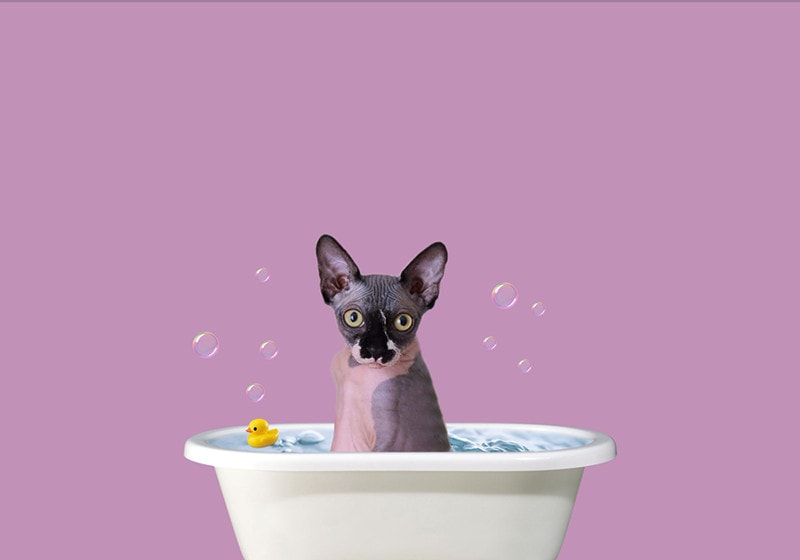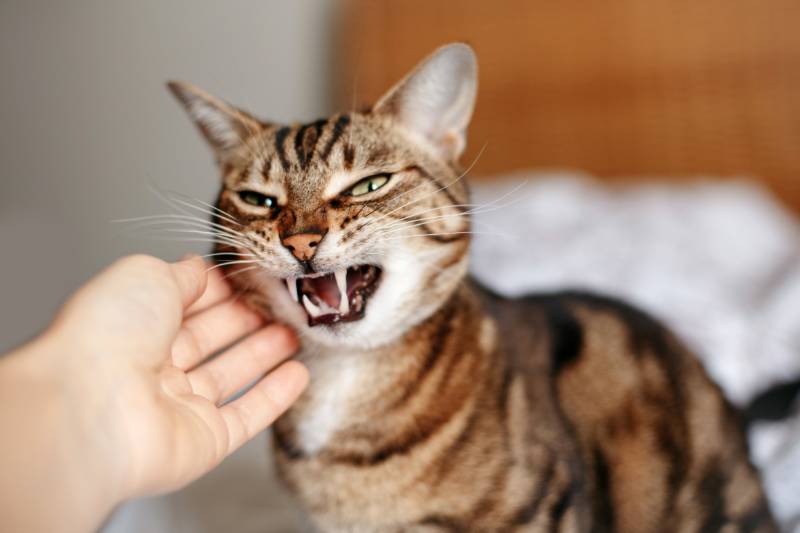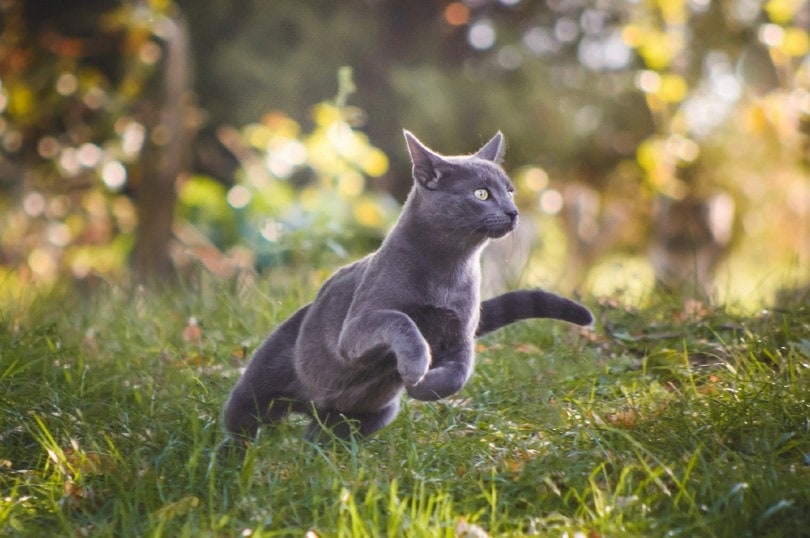4 Vitamin B12 Rich Foods for Cats: Vet Approved Options
Updated on
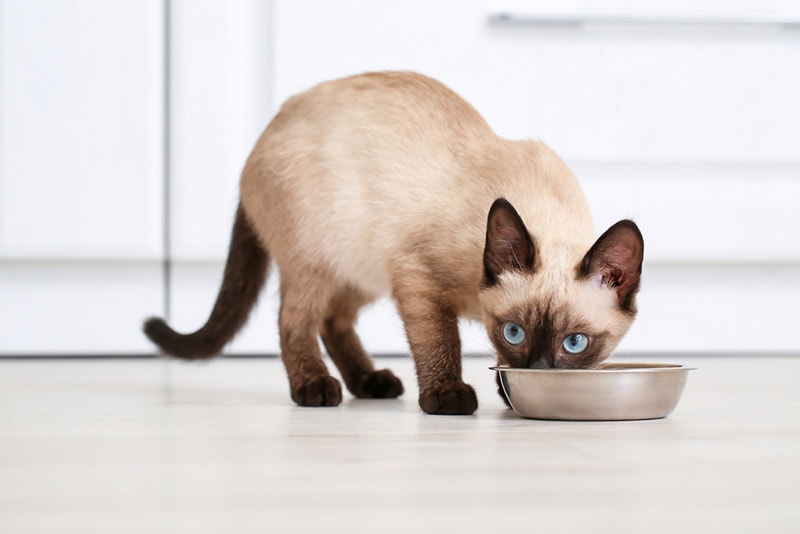
Vitamin B12, also called cobalamin, plays a vital role in your feline’s overall health. B12 is essential for your cat’s nervous and digestive systems, as well as the immune system. Cats cannot produce B12 on their own—instead, they acquire it through their diet. Most commercial cat foods include sufficient B12 for your cat’s needs, but what if your cat has been diagnosed with a B12 deficiency? In that case, your cat needs more than what cat food offers.
In this guide, we’ll list four foods rich in B12 that will enhance your kitty’s B12 intake for a healthier life. Just a tablespoon mixed with your cat’s regular diet can be beneficial. Let’s take a look.
The 4 Vitamin B12 Rich Foods for Cats
1. Liver
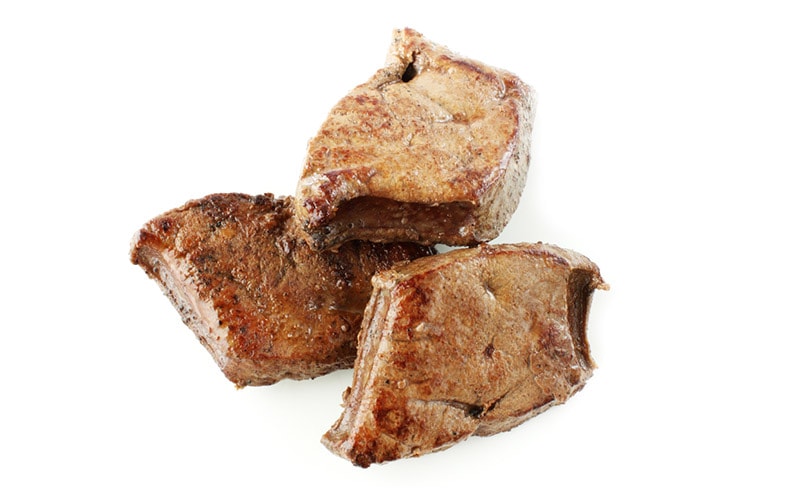
Liver is an organ meat and serves as an excellent source of B12. In the wild, cats eat the liver from their prey, and your kitty will have the instinct to eat the liver you provide. Small amounts of cooked liver are okay, but we recommend checking with your veterinarian before feeding liver to your cat because too much can cause other problems, such as vitamin A toxicity. You can also check with your veterinarian about other organ meats that may be sufficient to boost B12.
2. Fish

Fish is loaded with B12, and most cats love it! Superb choices include salmon, sardines, trout, herring, and fresh tuna. Be careful with tuna because it contains mercury, and too much mercury can cause other health problems.
Never feed raw fish, as raw fish can harbor bacteria such as E. coli and salmonella, which can make your cat sick. Raw fish also contains an enzyme called thiaminase.1 This enzyme destroys thiamine, a B1 vitamin that is essential for your cat’s overall health. Too little of this vitamin can cause major health problems. Your veterinarian can guide you in selecting the right fish and how much to feed.
3. Eggs
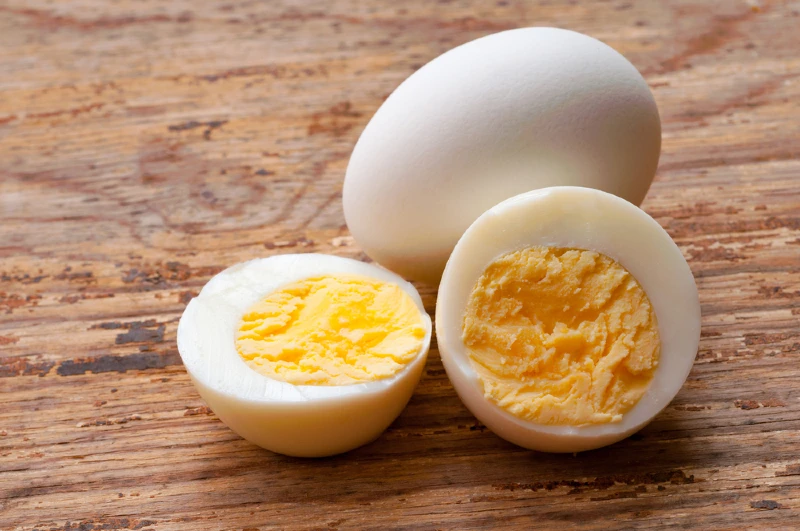
Eggs are an animal protein loaded with many vitamins in addition to B12, such as vitamins A, D, and E, biotin, riboflavin, and thiamine. Ensure you cook the eggs first, as raw eggs can contain harmful bacteria, just like in raw fish. Eggs are typically suggested as an occasional treat mixed with your cat’s regular food and are not suggested to feed daily. Your veterinarian can guide you on how often you can give your cat eggs.
4. Meat

Many types of meat contain B12 and can provide your kitty with a B12 boost. Among such meats are chicken, beef, lamb, veal, turkey, quail, and rabbit. Cats are obligate carnivores and need protein in their diets daily and adding a little of these types of meats can give them a B12 boost.
What Causes a B12 Deficiency in Cats?
Some cats may suffer from pancreatitis or inflammatory bowel disease (IBD), which robs them of B12 nutrients because they prevent the cat from absorbing B12 to keep them healthy. In order for a sufficient amount of B12 to be absorbed, many factors come into play. For instance, if your cat’s small intestine or pancreas is not functioning properly, your cat very well could develop a B12 deficiency.
Signs of a B12 Deficiency in Cats
- Loss of appetite
- Weight loss
- Lethargy
- Vomiting
- Diarrhea
Your veterinarian may suggest giving your cat B12 shots underneath the skin if the condition is chronic, or giving oral supplements. With a B12 injection, the nutrient goes right to the source, skipping digestion and ensuring your cat receives the vitamin. For cats with chronic digestive issues or other medical conditions, adding more B12 will not cure them of the disease causing the deficiency, but it can help alleviate the unpleasant symptoms for a better quality of life.
Now that you know what you can safely feed your cat, it’s just as important to find a bowl that supports their health and well-being. With whisker-friendly bowls and a wide tray to catch any spills, our Hepper NomNom Cat Bowl is our favorite option.
Conclusion
It’s important to have your cat examined by your veterinarian to assess the situation of a possible B12 deficiency before treating it on your own. Whatever medical condition is causing the deficiency will need to be addressed, and your vet can guide you in what to add to your cat’s diet or if B12 injections and supplements are in order. We recommend asking your veterinarian about adding a tablespoon of meat, liver, or cooked fish to your cat’s diet before adding it on your own and always avoid seasonings or spices.
Featured Image Credit: Pixel-Shot, Shutterstock




